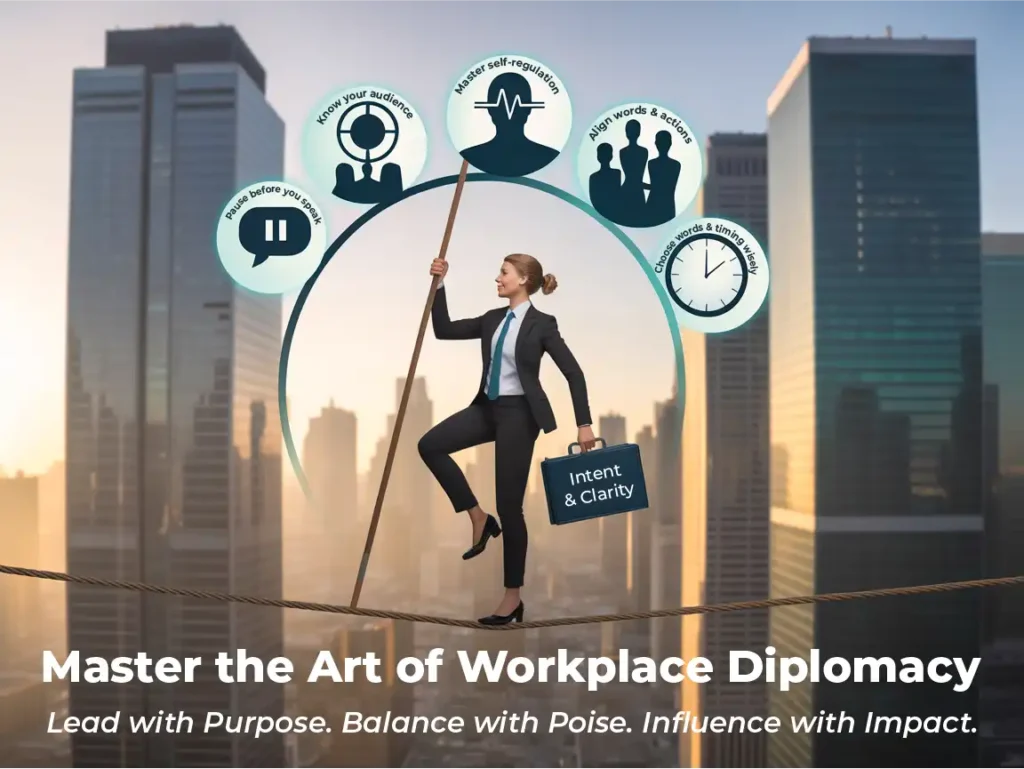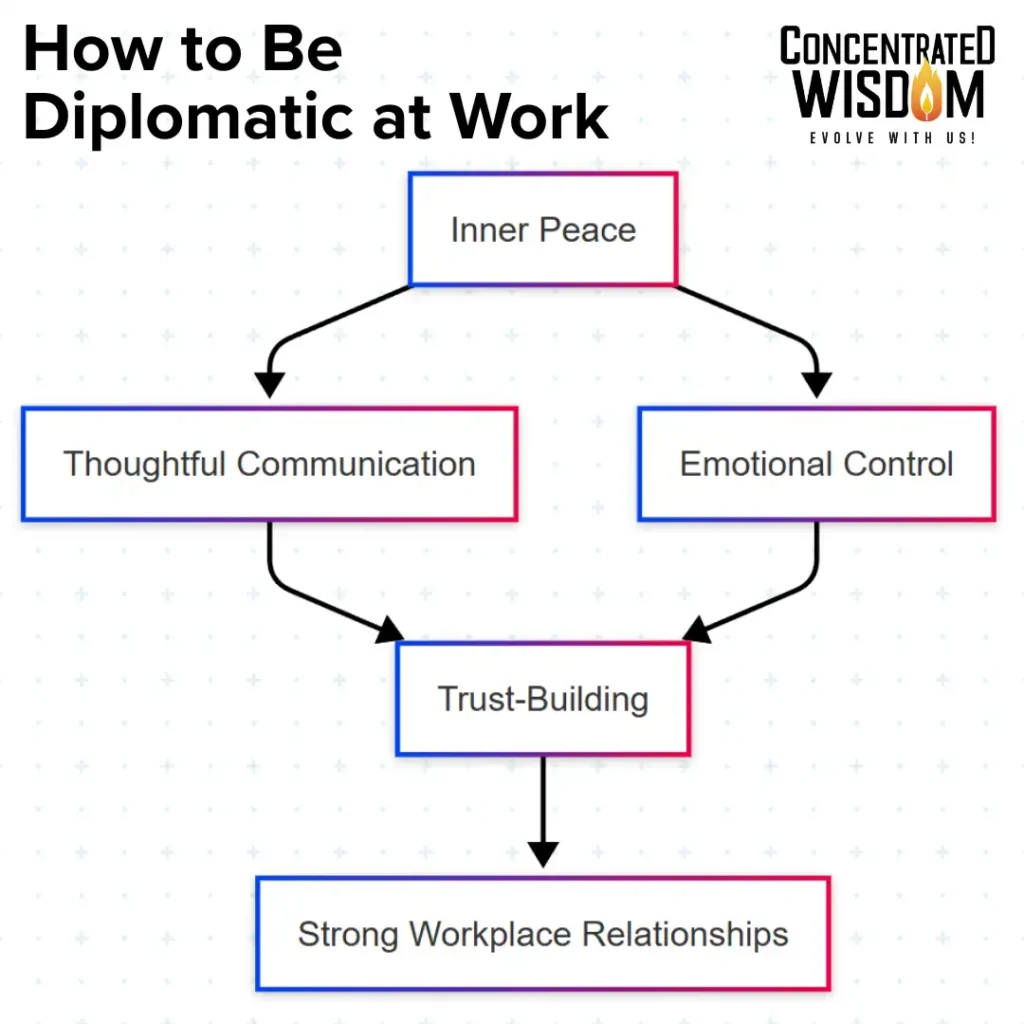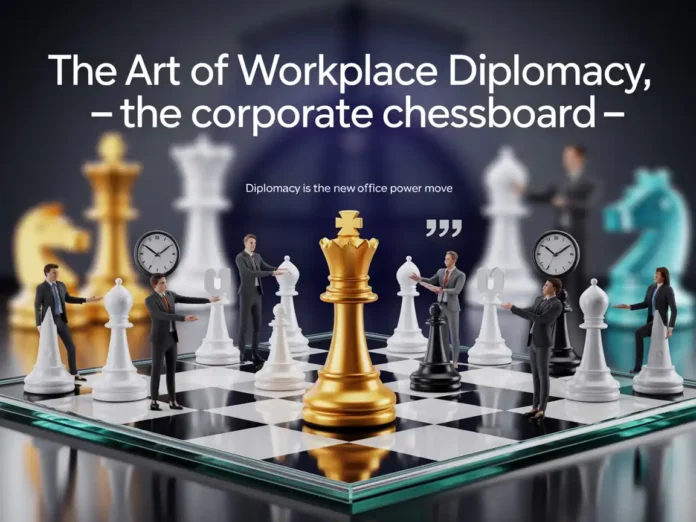In today’s workplace, success depends on more than just technical ability. To build influence, lead effectively, and maintain lasting relationships, we must master the art of diplomacy. This skill, long the domain of international envoys and negotiators, is now essential for anyone navigating professional environments. By applying everyday diplomacy at work, we foster trust, collaboration, and conflict-free communication—key ingredients for both individual and organizational success.
Understanding Workplace Diplomacy: What It Really Means
Workplace diplomacy is not about manipulation or being overly agreeable. It is the intentional practice of communicating with tact, empathy, and awareness, balancing honesty with courtesy to maintain positive professional relationships.
This kind of diplomacy is grounded in the same principles that guide international relations: mutual respect, cultural sensitivity, and a commitment to peaceful resolution. At work, it manifests through calm communication, respect for differing perspectives, and thoughtful engagement in every interaction.
Why Diplomacy Is a Competitive Advantage at Work
- Career Progression: Diplomatic individuals are often trusted with leadership roles because they resolve conflict gracefully and navigate office politics without drama.
- Team Harmony: Diplomacy encourages a culture of listening and respect, reducing friction and boosting collaboration.
- Open Dialogue: It enables candid feedback and honest conversations without damaging relationships.
When practiced consistently, diplomacy becomes a career catalyst, transforming average performers into respected leaders.
5 Proven Ways to Be More Diplomatic at Work

1. Think Before You Speak: Communication with Intent
Every word counts. Before responding, pause to consider tone, timing, and potential impact. Ask yourself:
- Will this be constructive?
- Could it be misunderstood?
- Am I addressing the issue or the person?
Well-thought-out communication reduces misinterpretation and builds credibility.
2. Know Your Audience: Tailor Your Approach
Not all colleagues process information the same way. Diplomacy requires adjusting your communication style based on personality, culture, and emotional state. For example:
- With data-driven thinkers, lead with logic.
- With relationship-oriented peers, show empathy first.
This personalization signals respect and builds rapport.
3. Master Emotional Self-Regulation
Staying composed under pressure separates true professionals from reactive ones. Techniques include:
- Deep breathing during tense moments
- Delaying responses to inflammatory comments
- Journaling or reflecting post-conflict
This emotional awareness keeps discussions focused and productive.
4. Align Verbal and Non-Verbal Cues
Body language, tone, and pacing often speak louder than words. Maintain open posture, consistent eye contact, and a calm tone. Watch for:
- Tense shoulders (may signal aggression)
- Rapid speech (can convey nervousness or impatience)
Ensure your delivery reinforces your message.
5. Time and Words: Choose Both Strategically
Diplomacy involves knowing when to speak and how to phrase ideas. Use phrases like:
- “May I offer a perspective?”
- “Let’s explore this further.”
- “I understand your concerns; here’s another angle.”
Avoid emotionally charged or absolute language. Let timing and tone soften the edges of difficult topics.
Visualizing Balanced Diplomacy at Work

Practice Makes Presence: How to Build Diplomatic Habits
Diplomacy isn’t an innate talent—it’s a trainable skill. Start with micro-practices:
- Express gratitude regularly.
- Reframe criticism as curiosity (“Help me understand…”).
- Seek feedback on your tone and communication style.
Over time, these habits become second nature, leading to smoother interactions and a stronger influence.
Final Thoughts: Diplomacy is a Leadership Superpower
Those who practice diplomacy earn trust, resolve conflicts efficiently, and inspire respect across every level of an organization. In a world increasingly shaped by collaboration and soft skills, diplomacy isn’t just helpful—it’s essential.
Let’s commit to making diplomacy part of our daily professional toolkit. Your next promotion might just hinge on your ability to listen, adapt, and communicate with grace.



